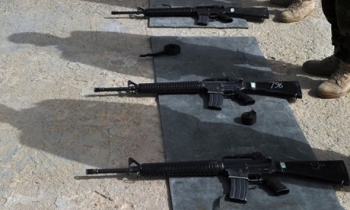A newspaper editor will be go on trial over his paper's recent reports questioning the health of Egypt's 79-year-old president, Hosni Mubarak. Ibrahim Eissa, editor of the independent daily Al-Dustor, was questioned last week for printing the rumours and released without bail, but the general prosecutor decided Tuesday to send the case to trial, the MENA news agency reported.
Eissa's trial on charges of disturbing the peace and harming national economic interests is set to begin October 1, his lawyer, Nasser Amin, told the Associated Press (AP). He could face up to three years in prison if convicted, Amin said.

MENA said that, according to Egypt's Central Bank, the rumours prompted the "withdrawal of foreign investments worth more than $350 million in the two days of the publishing these rumours."
"All the accusations are nonsense," Eissa, 41, told AP. "They are using me to scare journalists and critics from criticizing Mubarak personally or from talking about the possibility of his son inheriting power."
“This case is just a pretext for settling scores with an independent daily whose editor is very critical of the government,” Reporters sans Frontières (RSF) said. “Eissa was not the first to report the rumours about the president’s health, but he was the only one to get a summons. We are all the more concerned as the case should be tried by the court for the press and publications, and not by the state security court.”
The president, who has ruled Egypt for more than a quarter-century, has no designated successor, but many believe his son Gamal is being groomed for power, a prospect that has raised widespread opposition, the AP report went on to say.
Several opposition and independent newspapers published stories for several weeks last month speculating that Mubarak's health was poor. Al-Dustour carried front-page stories for several days, including one that contended Mubarak sometimes lapses into comas.
Mubarak and state-run media did not comment or deny the rumors for weeks, until finally the president appeared in photos and gave an interview to state-run media.
In his interview with the government Al-Ahram newspaper, Mubarak accused "illegitimate movements" of being behind the rumors — a reference to the Muslim Brotherhood, which is Egypt's most powerful opposition movement, though it is officially banned. The group's leader, Mohammed Mahdi Akef, denied the allegation.
Eissa is an outspoken critic of Mubarak. His paper is sharply critical of the government and often breaks political, social and religious taboos in its commentaries on Egyptian society. Its sharp language earned the ire of censors and editions were confiscated three times in the 1990s.
Al-Dustour was closed in 1998 for seven years by the government, after it published a statement by an Islamist group that threatened Coptic Christian businessmen in Egypt. In 2006, Eissa was sentenced to a year in prison for libeling Mubarak, but an appeals court reduced the sentence to a $4,000 fine.









